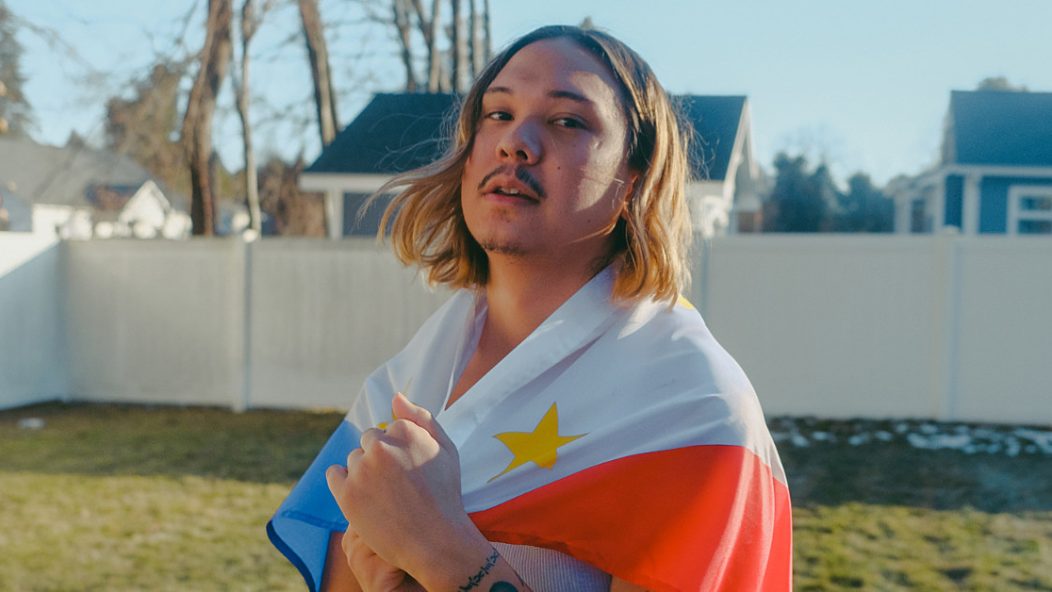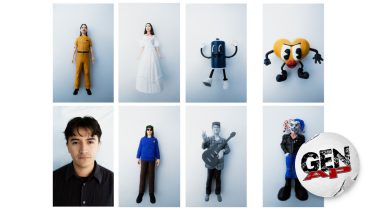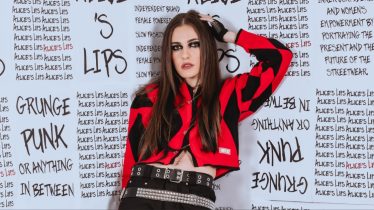
Op-Ed: How I created a home within the pop-punk scene as a Filipino artist
I recall a conversation I had with someone around the time we began Young Culture. They asked me, “What does representing Asian-American culture in the scene mean to you?” I didn’t understand the significance of the question or why it mattered, and it made me feel uncomfortable. Years later, I feel the urge to try to answer that question for myself and for other folks who ask themselves similar questions.
I knew I wanted to be a musician from a very young age. I would steal my brother’s Fall Out Boy, Dashboard Confessional and Taking Back Sunday CDs and listen to them on the bus to school every day. Those people were my idols, my heroes. Most of those people on my bus and in my school didn’t look like me, and neither did my idols. These were some of the first times I felt like I didn’t belong.
Read more: Indie band Blvck Hippie aspires to overhaul the DIY scene and uplift artists of color
Fast forward a couple years and I’m throwing out my lunches every day, embarrassed by the ethnic food that my mother would send me to school with. One day, she sent me to school in a Barong Tagalog, and the shame I felt was enough for me to make her pick me up only hours into the day. These were some of the first times I realized I wasn’t “white.”
These experiences followed me for a long time — hating my Asian heritage, feeling excluded because I was different. Not white enough to fit in, but at the same time, not ethnic enough to stand out. This didn’t help when I began attending and playing shows, either. Seeing the people who played the music I love both in my local scene and in popular culture discouraged me a lot. “Why don’t I look like them?” I would ask myself. A lot of Asians are brought up with self-esteem issues and a lack of confidence, especially in America, and it all played a role in how I looked at myself. I would tell myself, “You can’t prosper here.” The lack of representation in bands and musicians I looked up to made me question if a career in music was even possible for someone like me. Despite these doubts, I continued to pursue my passion for music and eventually formed Young Culture with my bandmates.
As we began to play shows and tour, I quickly realized that being a person of color in the music community came with its own set of challenges. At times, I felt like an outsider in a scene that was predominantly white. I often found myself being the only person of color on the bill or in the audience. Although my bandmates and peers were always quick to reassure me if I ever had any doubts, this feeling of isolation and disconnection can be overwhelming and disheartening.
However, despite these challenges, I find it important we use our platform as musicians to bring attention to the lack of representation and diversity in the music scene. So many of my POC contemporaries are already doing a great job at this. I want to be a role model for other young AAPI individuals who have dreams of making it in the music industry. I want to show them that it is possible to achieve success and make a difference in a community that often feels exclusionary.
Additionally, I believe that it is important for all musicians and music lovers to actively work toward creating a more inclusive and diverse community — and be careful not to confuse this with appropriating our cultures. This could be actively seeking out and amplifying marginalized voices or simply listening and learning about the experiences of those who have been historically underrepresented. No matter how large or small your efforts are, I guarantee they’re appreciated.
As people of color in the music scene, we’ll always face unique challenges and feelings of isolation. However, I am confident in my and my peers’ efforts to use our platform to create change and empower other marginalized individuals to pursue their dreams in the music industry. This isn’t going to happen alone with words, but my hope is that I can help push the needle toward a more inclusive music industry, and, furthermore, that I can encourage other folks who have struggled with these dilemmas.
How we look, our heritage, and our traditions are what make us beautiful, and I needed to learn that myself. So what does representing Asian-American culture in the scene mean to me? It means that part of my role as a frontman has to be being an example for people who need reminders that we belong. Together, we can work to break down barriers and ensure that everyone has an equal opportunity to pursue their passion for music.
The new album from Young Culture, You Had To Be There, is out now via Equal Vision Records.










